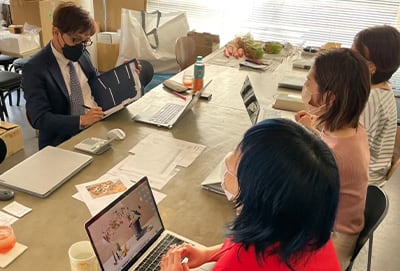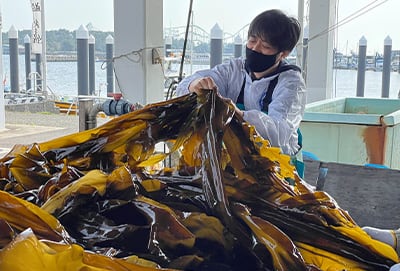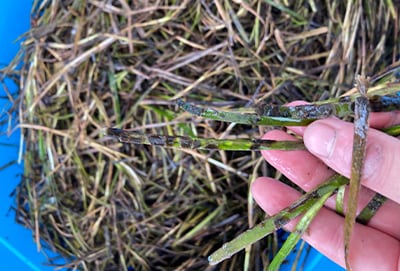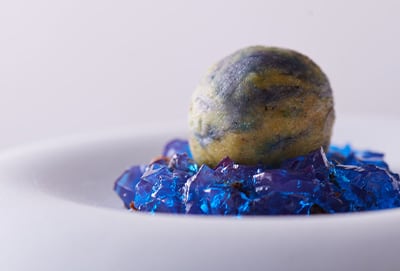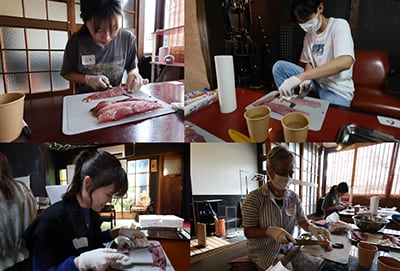

- TOP
- AWARD




The Japan Sustainable Seafood Award (JSSA) was launched in 2019 to further accelerate the sustainable seafood movement in Japan. JSSA calls for initiatives to promote sustainable fisheries and increase awareness on sustainable seafood. Outstanding projects are selected as finalists and the finalist producing the greatest impact is selected as the champion.
With a view to facilitate the sustainable seafood movement across Asia, this year, JSSA will call for outstanding projects not only from Japan but also from Asia.

The leadership category recognizes pioneering projects that exert leadership in innovative efforts to facilitate the sustainable seafood movement in Japan and/or other parts of Asia. These projects can be executed by one or more people or organizations.

The collaboration category recognizes impactful multi-stakeholder collaborative projects that take an innovative approach to drive change in Japan and/or other parts of Asia.
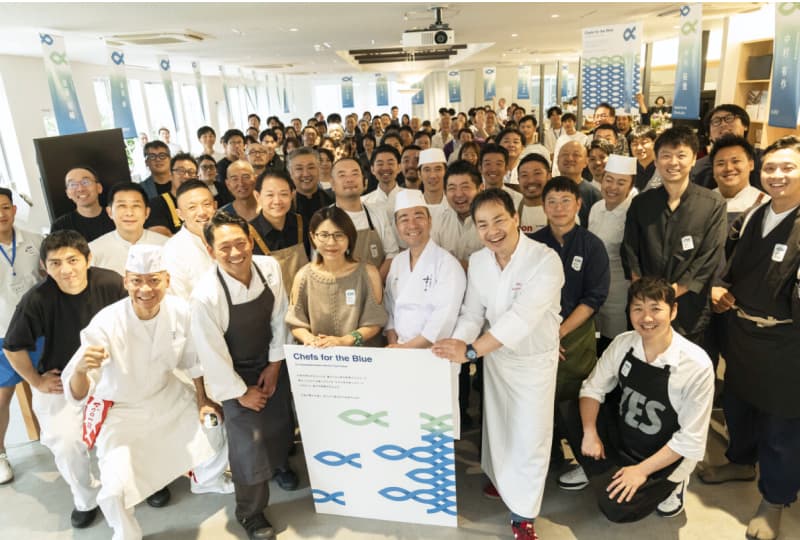
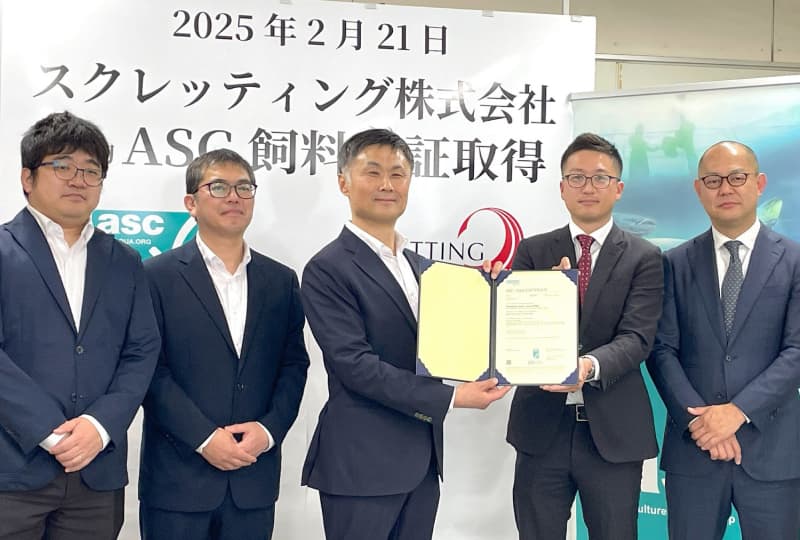
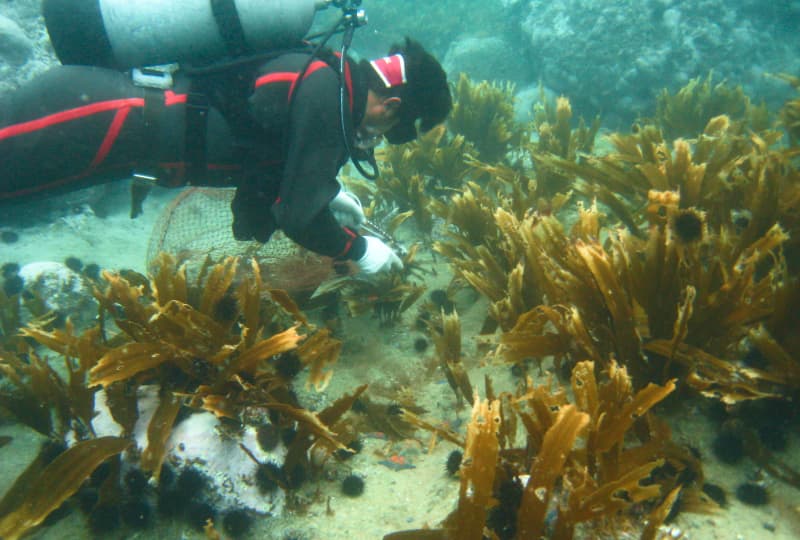
May 19, 2025 – July 21, 2025
Those who are implementing or have implemented projects that meet the following criteria are eligible to apply.
Period:
Projects that are ongoing or have been completed between July 1, 2023, and May 18, 2025, in Japan and/or other parts of Asia.
Activity Focus:
Promoting sustainable fisheries and/or raising awareness on sustainable seafood.
Geography:
(1) Projects that are ongoing or have been completed in Japan and/or other parts of Asia, implemented by organizations or individuals based in Japan; OR
(2) Projects that are ongoing or have been completed in Japan and/or other parts of Asia, implemented by organizations or individuals based in Asia.
Important Notes
When a project has eligibility to both the leadership and collaboration categories, an applicant may submit an application to each category using information on the same project. In such cases, however, the applicant cannot be selected as a finalist for both categories at the same time.
Projects that have been submitted previously are also eligible to apply, provided there has been progress or new outcomes since the previous submission.
(1) Leadership Category
The leadership category recognizes pioneering projects that exert leadership in innovative efforts to facilitate the sustainable seafood movement in Japan and/or other parts of Asia. These projects can be executed by one or more people or organizations.
(2) Collaboration Category
The collaboration category recognizes impactful multi-stakeholder collaborative projects that take an innovative approach to drive change in Japan and/or other parts of Asia.
Document Review
A selection committee consisting of third-party referees will review submitted documents to select finalists and the champion for each category.
Application period: May 19, 2025 – July 21, 2025
Application closed
Selection process: Late July – late August, 2025
Announcement of finalists: September 8, 2025
The finalists will be announced on this web page.
Announcement of champions and award ceremony: September 30, 2025
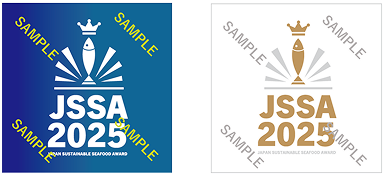
Naoki Adachi (CEO, Response Ability, Inc.)
Masanori Miyahara (Advisor to the Ministry of Agriculture, Forestry and Fisheries of Japan, President of Yorozu Fisheries Advisory Office afc.masa)
Mariko Yamamoto (Executive Assistant to the President, Saraya Co., Ltd. / Executive Assistant to the Honorary Director of the Blue Ocean Dome)

The information of each project is from that time.
Kita-Sanriku Factory
moova

"Isoyake," known as the desertification of the ocean, is a serious environmental and social issue in various countries, including Japan. It is caused by environmental changes such as global warming and is characterized by the overpopulation of sea urchins, which leads to the destruction of seaweed bed.
At the Kita-Sanriku Factory, we are working for "Sea Urchin Regeneration and Cultivation" to transform lean sea urchins, which have suffered due to the isoyake, into delicious sea urchins rather than disposing of them. We also promote "Seaweed bed restoration" using compost blocks made from sea urchin shells.
However, the awareness of the global issue of ocean desertification is still low, and to address the increasingly critical situation, we believe that more effort and innovative ideas are required. Therefore, we have established a platform that connects people and communities from various fields, not just those in the seafood industry, to take collective action in confronting this challenge.
Miya Fisheries High School, Yamasa Chikuwa Co., Ltd., and Aichi Prefecture Freshwater Aquaculture Cooperation

In collaboration with Yamasa Chikuwa, our school has developed "Satsuma-age" (a type of deep-fried fish cake) using golden shrimp harvested by the Nishiura Fishermen's Cooperative in Gamagori City. Golden shrimp is a deep-sea shrimp that can be challenging to peel, and it is sometimes discarded even if caught. Although processing is labor-intensive, when heated, these shrimp display a vivid red color, making them particularly distinctive (they appear pale red when raw but become more vibrant when cooked). We have looked at the color change and turned the powdered shrimp into surimi, which is then provided to local school lunch programs and other initiatives.
By collaborating with local businesses to process locally-caught seafood, we aim to spark students' interest in the seafood industry and nurture the next generation of professionals. This project not only promotes local sustainability but also educates and engages students in the importance of local seafood production.
Kunimi-maru

Our business concept is a sustainable fishery with the concept of "Your Exclusive Fisherman," which is the first of its kind in Japan, known as "Complete Order-based Fishing." It is a novel fishery system that incorporates a made-to-order production from nature by using e-commerce sites and social media to accept built-to-order from consumers.
Traditionally, fishermen catch fish at their convenience and supply them to the market. Our "Complete Order-based Fishing", on the other hand, is the opposite of the conventional fishing system. It represents a new business model that can address current challenges in the fishing industry, such as overfishing of fishery resources, price instability, overworked fishermen, and a shortage of successors.
"Complete Order-based Fishing" aims to bring innovation to the fishing industry while preserving resources for the future. We are currently in the process of applying for the prefecture's business innovation plan.

